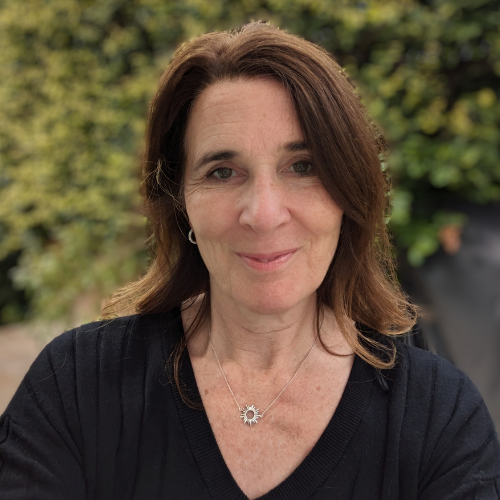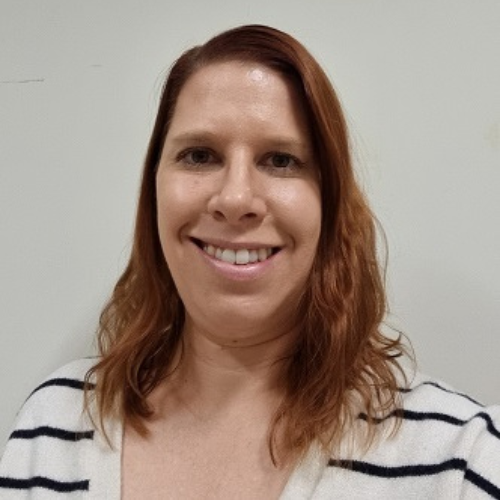November News
This month we’ll share with you news about the Home Haemo-Dialysis plan. In our ‘Meet the Team’ section, we chat with Katie Durman, Clinical Lead Renal Dietitian at Royal London Hospital and Lisa Ancliffe, Clinical Lead Occupational Therapist at Royal Free Hospital. You can also find out about upcoming events in the LKN.
We hope you enjoy reading our newsletter, and look forward to sharing more with you in December.
Home Haemo-dialysis; planning for the future
Home Therapies Workstream launched their work on home hemodialysis at a recent in-person meeting, having focused on peritoneal dialysis to date. Healthcare professionals from across London came together to discuss Home Haemo-Dialysis (HHD) Programmes in their units.
The meeting provided a collaborative space for attendees to share insights, experiences, and best practice, and to begin to plan ways to improve services across London.
Dr Sandip Mitra, Consultant Nephrologist at Manchester Royal Infirmary, presented his work to improve Home Hemo-Dialysis care in the Manchester region.
London’s diverse population means local patients’ needs dictate how kidney care is provided across the capital. Dr Neil Duncan, from Imperial College Healthcare NHS, spoke about his approach to create trust and rapport with patients so they can confidently choose to dialyse at home.
“This gathering allowed us to learn from each other’s successes and challenges, providing a valuable platform for understanding the different scenarios and demands across London in the realm of home haemodialysis.”
“I appreciated the open dialogue among colleagues—it’s clear that there’s a shared dedication to optimizing the delivery of care through home-based dialysis programs.”
“The meeting underscored the importance of collaboration. It’s inspiring to see healthcare professionals come together with a common goal of advancing patient-centred care.”
Next Steps:
The LKN Home Therapies Workstream is committed to building upon the learning from the afternoon, to further strengthen the HHD community in London. The Group’s priorities are to:
1. Increase access to and availability of HHD in London by fostering collaboration and sharing best practices, supporting London-wide improvements in the HHD program and encouraging local quality improvement (QI) projects that address specific local needs.
2. Support London-wide improvement in HHD rates and outcomes. Use agreed metrics to monitor current status, identify areas for improvement and demonstrate progress, then share learning across London.
Meet the Team
In the October Newsletter, we introduced a ‘Meet the Team’ section. We met Sinead and Deepa, two AHPs who work with the LKN. This month, we chat with Katie and Lisa to hear why they love being AHPs, and why working with the LKN is important to them.

Katie Durman
Clinical Lead Renal Dietitian and LKN Multi-Professional Lead
Royal London Hosptial
What do you love about being an AHP? It is a privilege to work with patients to make dietary and lifestyle changes to manage their clinical condition, improve quality of life and prevent further ill health.
I particularly like working autonomously but at the same time being very much part of the wider clinical team. I am proud that as a Dietitian and AHP I provide accurate scientific information in an easily understood way which is tailored to the individual. The difficulty of making dietary and lifestyle changes should not be underestimated and people deserve to know the evidence behind the recommendation.
What skills does being an AHP give you that allow you to fulfil your role in the LKN? Communication, advocacy for the patient and those who are less likely to speak up or have a voice at the table, problem-solving and seeing the bigger picture are all skills which have been invaluable when working for the LKN
What do you love about working with the LKN? I am working with a fantastic group of healthcare professionals and people with lived experience of chronic kidney disease; I am learning so much. It is very rewarding to be part of the LKN, improving kidney care for people in London.
What’s your advice to other AHPs considering taking on a non-traditional role? Go for it! As an AHP you have a wealth of transferrable skills and we need a variety of voices and experiences to lead and drive change. If we don’t do it someone else will and they might not be the best person for the job!

Lisa Ancliffe
Clinical Lead Occupational Therapist and Member of the LKN Supportive Care Workstream
Royal Free Hosptial
What do you love about being an AHP? I love being able to get an insight into patients’ lives and who they are as a person beyond their health condition. I love working as an MDT, utilising everyone’s specialist skills to get the best outcomes for patients.
What skills does being an AHP give you that allow you to fulfil your role in the LKN? Having advanced communication skills and being able to be flexible to adapt to any situation is really helpful.
What do you love about working with the LKN? It’s great to connect with other units, benchmark our services and promote what OTs and other AHPs can bring to renal care.
What’s your advice to other AHPs considering taking on a non-traditional role? Have confidence not only in the
specialist skills that you can bring to a role but also in your transferrable skills. We sometimes downplay those, but they are actually highly valuable to the wider team.
Did you know?
Lisa was recently featured on an OT-related podcast. The latest episode, “Diary of a Kidney Warrior Podcast Episode 97: Occupational Therapy & Chronic Kidney Disease (CKD).
Clinical Lead Occupational Therapist for the Renal & Urology Team, Lisa Ancliffe joins Dee Moore to share about Occupational Therapy and Chronic Kidney Disease CKD.
You can access this podcast below:
Leadership Forum
We were delighted to welcome 40 healthcare professionals and kidney patients to our October Leadership Forum.
We heard about how the LKN has incorporated the patient voice in its work to date, and the plans for making it more effective in the future. The Forum heard how Peer Support can be used to help people living with kidney disease and why it’s such a useful approach.
Thank you to all the speakers and guests, and as ever, to everyone who joined and contributed to the discussion.
The next Forum is on Monday 27 November, and will be led by the Clinical Information Group.
Supportive Care Module
The Supportive care e-module is now live! If you’d like to learn more about Supportive Care follow this link – Supportive Care
It is free to access, although you will have to register with KHP, if you haven’t already. We’d like to thank our colleagues at Kings Health Partners for their work building the e-module.
“Good luck embedding these modules within your kidney unit. I hope staff find them informative and useful, and they go some way to improve the care we provide for this group of patients.”
The official launch of the modules will be at the LKN Supportive Care audit meeting on 15th December (see details in ‘upcoming events’)
Health Equity Module
Don’t forget the Health Equity e-module went live last month. If you haven’t already, why don’t you spend 30 minutes finding out about kidney health inequalities and your role in reducing them? Learn more
Events/Coming Soon
In this section, we share information about events and education opportunities either that we’re hosting, or that we think you might be interested in. If you’ve got an event you’d like to promote, contact us with the details and we’ll do our best to share it.
AstraZeneca are delighted to invite you to the Long Term Conditions Revolution meeting taking place in person in London over two days, Friday 3rd & Saturday 4th November 2023 at the Royal College of General Practitioners. Attendees will be a mixture of primary and secondary care clinicians, ICS chief executives, ICB chairs and board members, ICP chairs, Trust chief executives, Senior regional and national NHS England representatives, System clinical leads, PCN Clinical directors, ICS, trust or PCN digital leaders.
Objectives:
-
- Foster a shared understanding of the current state, challenges, and opportunities in Long Term
Condition (LTC) management - Understand the challenges in transforming healthcare at a population level and identify
solutions to overcome the barriers - Identify scalable initiatives across the NHS that optimise care and reduce health inequalities, whilst cultivating collaborations and partnerships for LTC transformation
- Foster a shared understanding of the current state, challenges, and opportunities in Long Term
You can find out more and register using this link – AstraZeneca Event
KCL are running an Advanced Kidney Care Conference on February 8 th 2024. By the end of the symposium, you will have learned about:
-
- Key outcome data available for this population as well as the data we should be collecting
- Causes of and approaches to inequalities in this population
- How to put the patient at the centre of decision-making as they consider treatment options
- How to widen choices and optimise care for patients with high BMI and for frailer older patients
- The UKKA/KQuIP National Advanced Kidney Care Quality Improvement Project
If you would like to know more please follow the link to Advanced Kidney Care Symposium (kcl.ac.uk) where you can see the programme and register for the meeting.
-
- Present the findings from the first pan-London Supportive Care audit
- Share examples of best practice from across London
- Launch the Supportive Care e-learning modules
- Provide opportunity to meet colleagues in person
- Give time for discussion, agreeing and planning future work.
